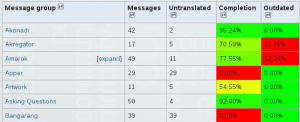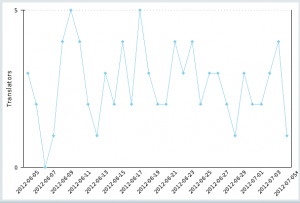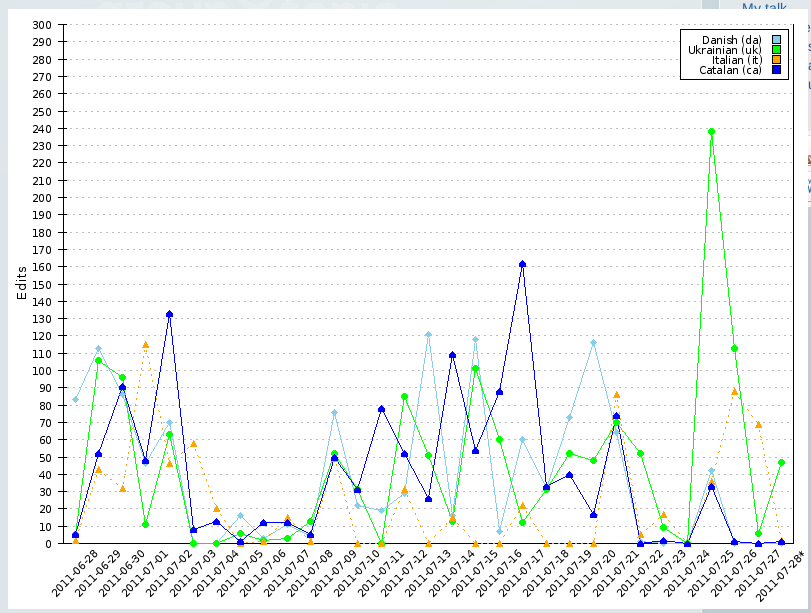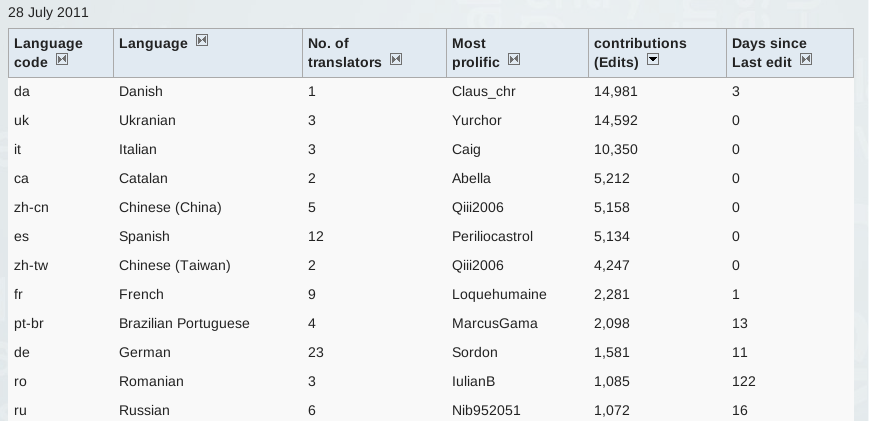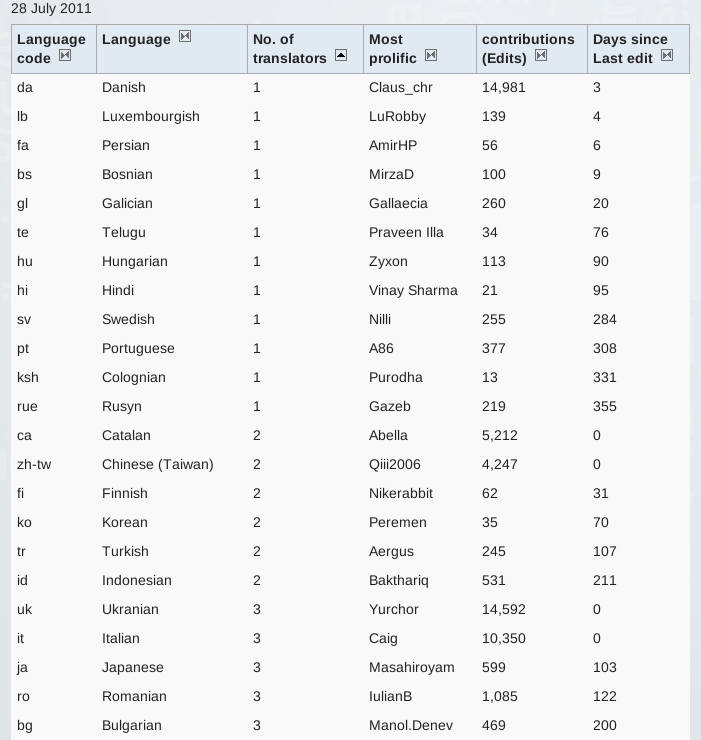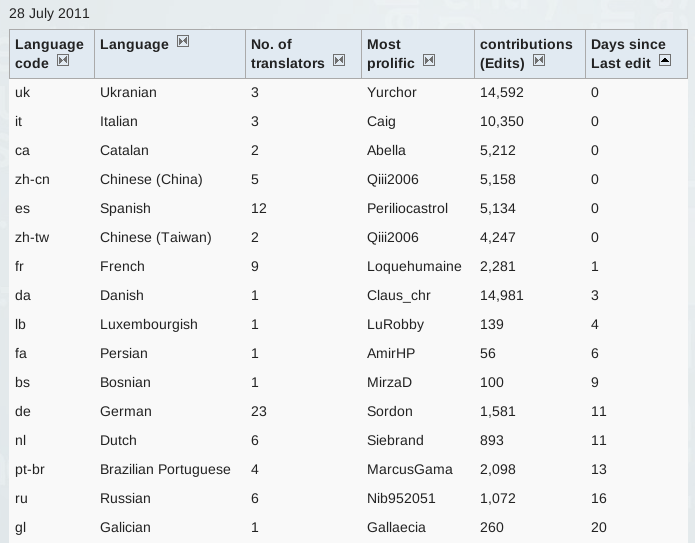Happy New Multilingual Year!
If you’ve watched Neverendingo’s awesome video you will have seen how the activity on UserBase suddenly ran wild, when the Translate extension came into being. We regularly get new translators registering on UserBase, and more recently translators for TechBase are signing up. It’s clear that we have a dedicated core of translators, but beyond that we had no indication of other activity. With this in mind, I set out to investigate.
So, what do we learn from that?
- A few dedicated people have translated a considerable number of pages to a very high degree. Bear in mind that there is no indication of how long any translator has been working. There is at least one example of a fairly new translator that has done a great deal of work in a short time.
- There are a surprising number of pages translated to between 31% and 79%.
- It appears that some translators work hard on a few pages only, maybe for a particular project.
- Sadly, there are a few people that sign up, often for one of the less well-known languages, but do little or no translating.
It should also be noted that LTR (left-to-right) languages have not been well supported in Mediawiki, although there is some progress with this, which goes some way to explain lack of pages in those languages.
And what of TechBase?
Translation on TechBase is much newer. It’s not always relevant to translate pages, particularly if they are written for use by a small, one-language team. It’s encouraging, though, to see regular contributions to translations. Here are the statistics for TechBase:
So finally, I want to thank everyone for this tremendous effort, and let’s make 2013 even greater!

